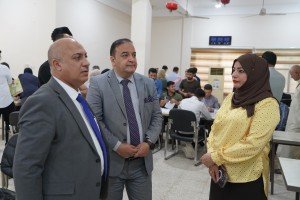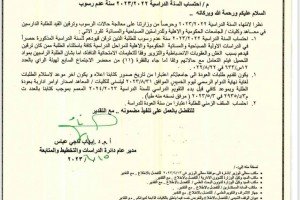
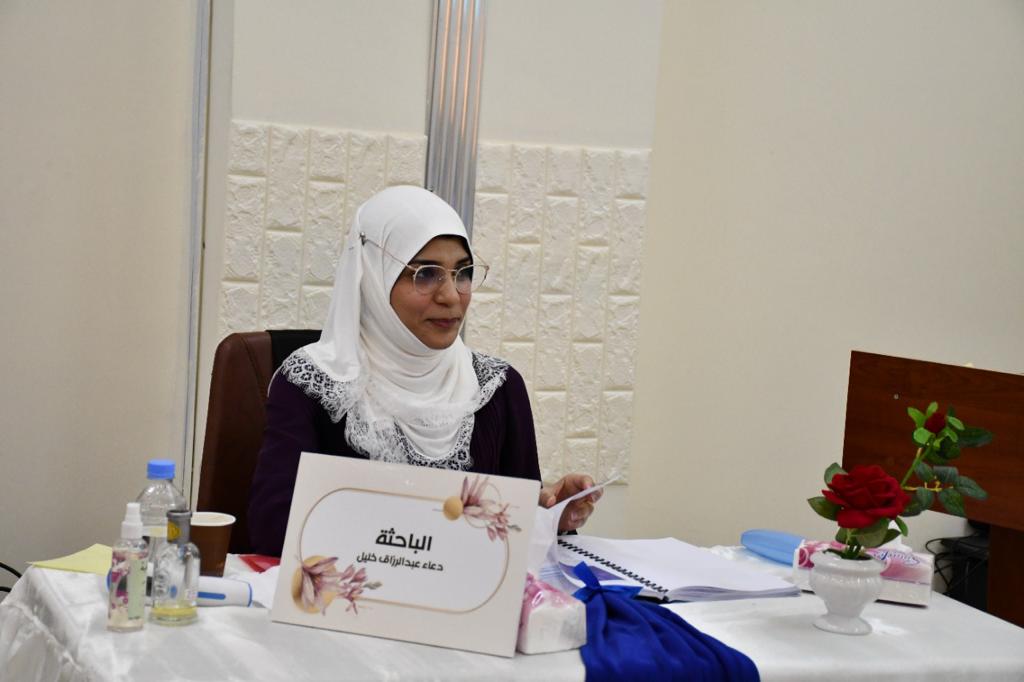
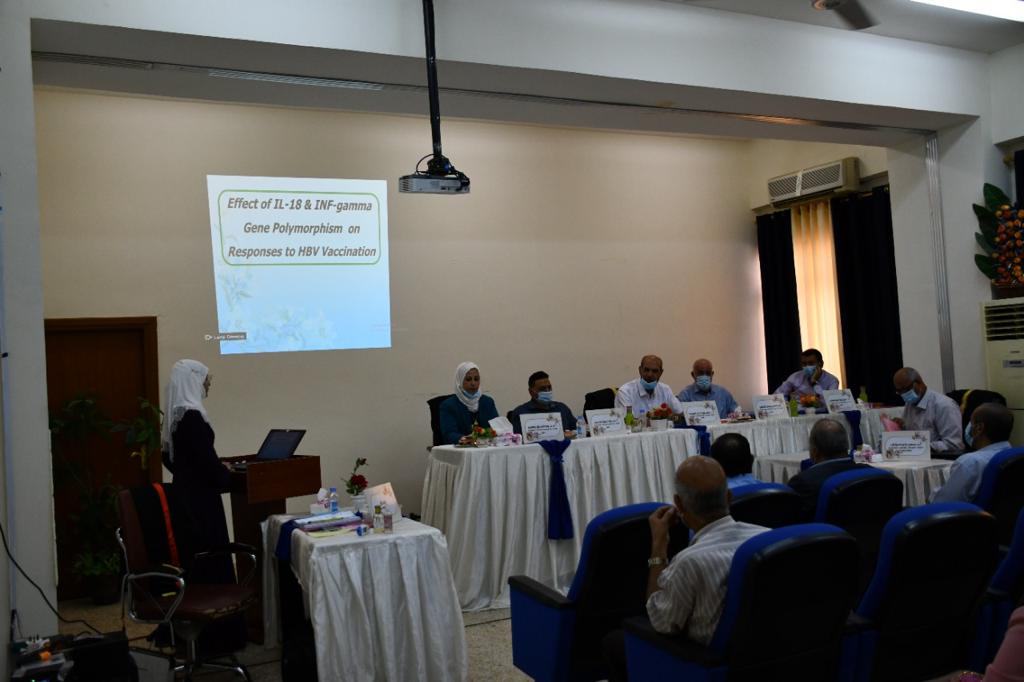
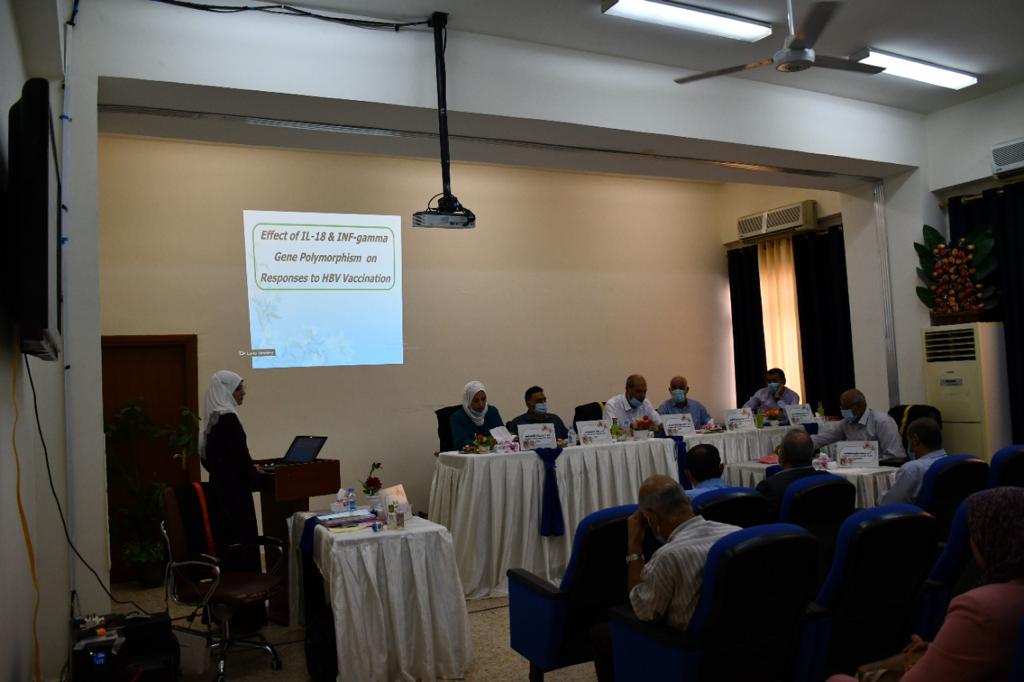
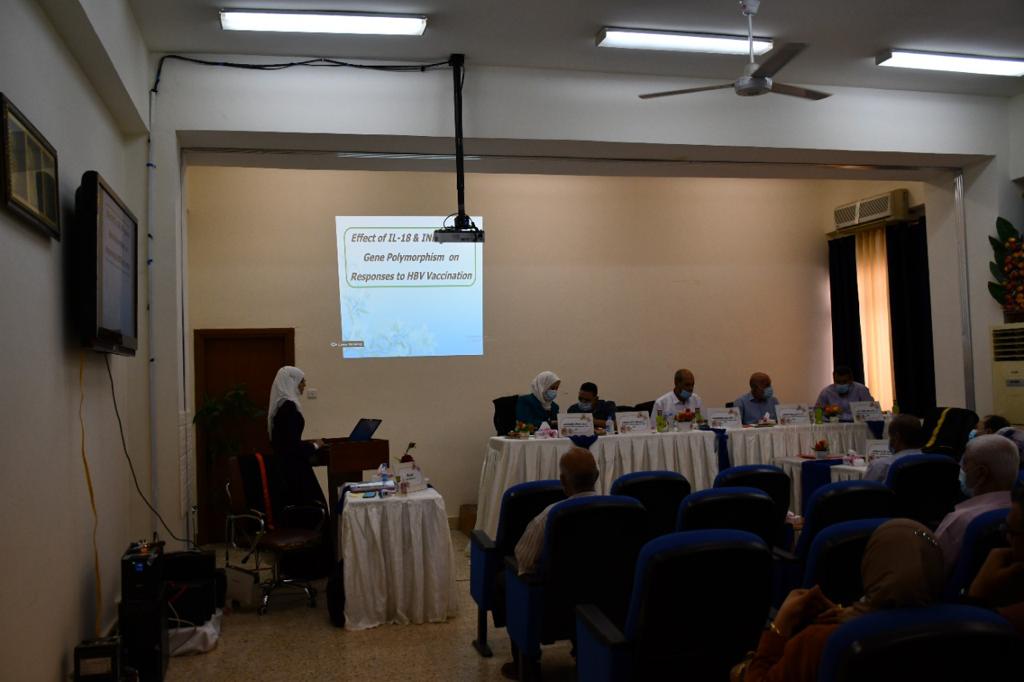
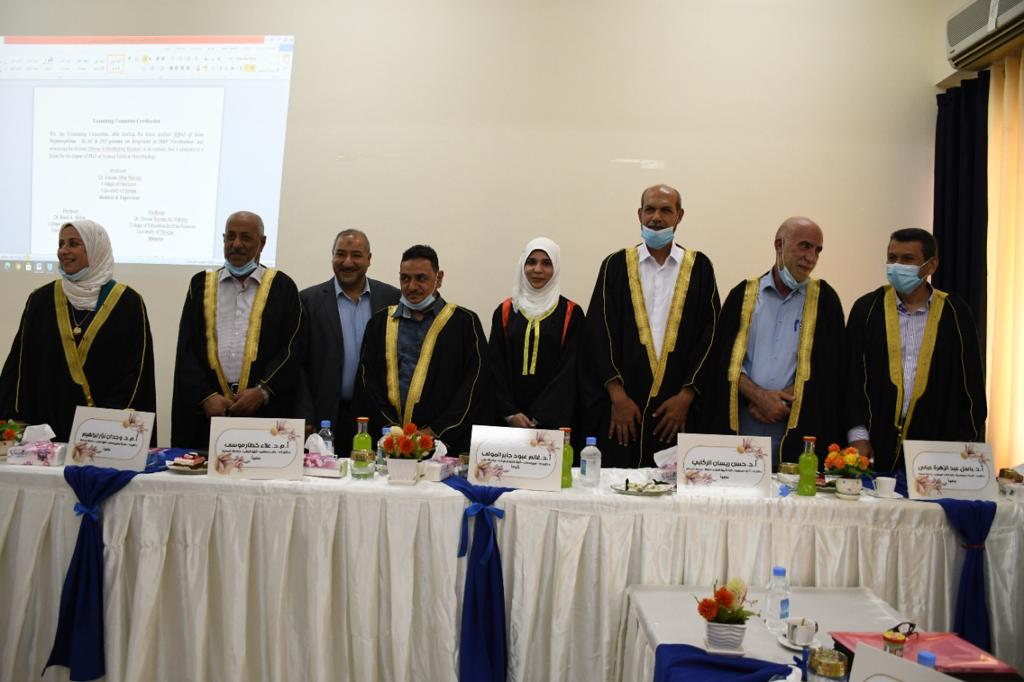
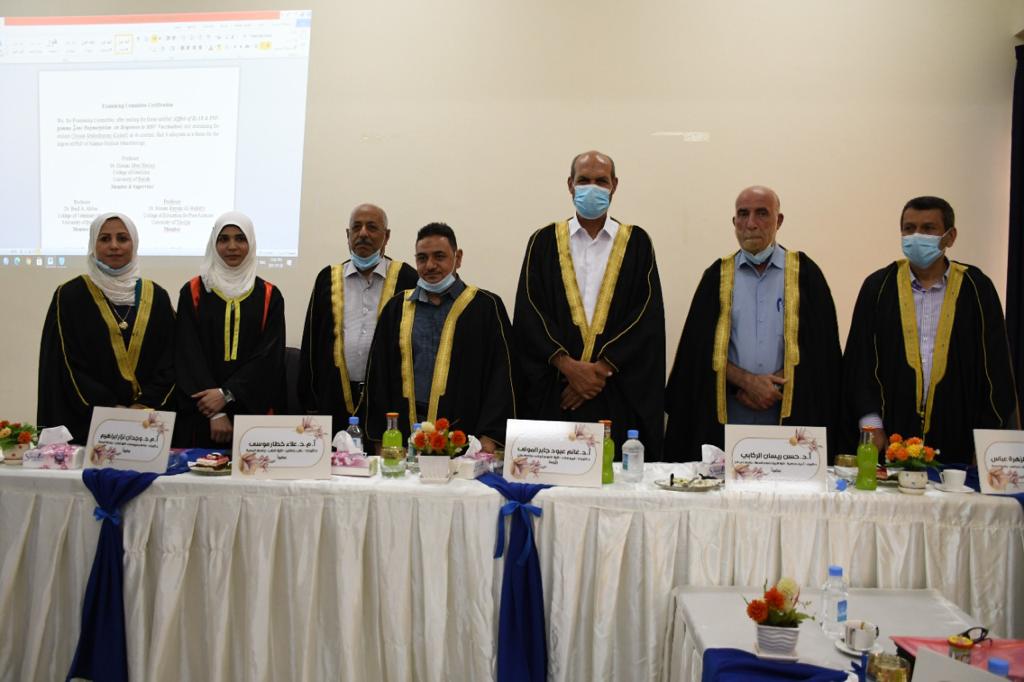
A doctoral thesis at the University of Basrah - College of Medicine, discussed the effect of genetic polymorphisms in interleukin-18 and interferon-gamma on the response to vaccination against hepatitis B virus in children. The thesis presented by student Doaa Abdel-Razzaq Khalil :aims to determine the genetic polymorphisms of some immune markers that play a role in the response to vaccination, such as interleukin-18 and interferon-gamma, which help prevent hepatitis B infection by identifying potential risk factors before occurance of the disease, as well as using genetic polymorphisms of IL18 and INF Gama as biomarkers for early diagnosis of the non-response to hepatitis B vaccine.
The thesis concluded: that there are high rates of children who did not respond to the hepatitis B vaccine, which is higher than the rates reported all over the world. The results also confirmed that there is a close relationship between the level of immune markers (IL18 and INF-) and genetic polymorphisms. The thesis recommended that the anti-HBsAb level in children should be estimated 4-6 weeks after the last dose of HB vaccine taken to assess immunity, as decreasing HBsAb levels over time requires a booster dose to reduce the risk of hepatitis B infection in children. The thesis also recommended the necessity of conducting an extensive study of cytokine receptors and lead-like receptors and their association with the response to HB vaccine in children.





